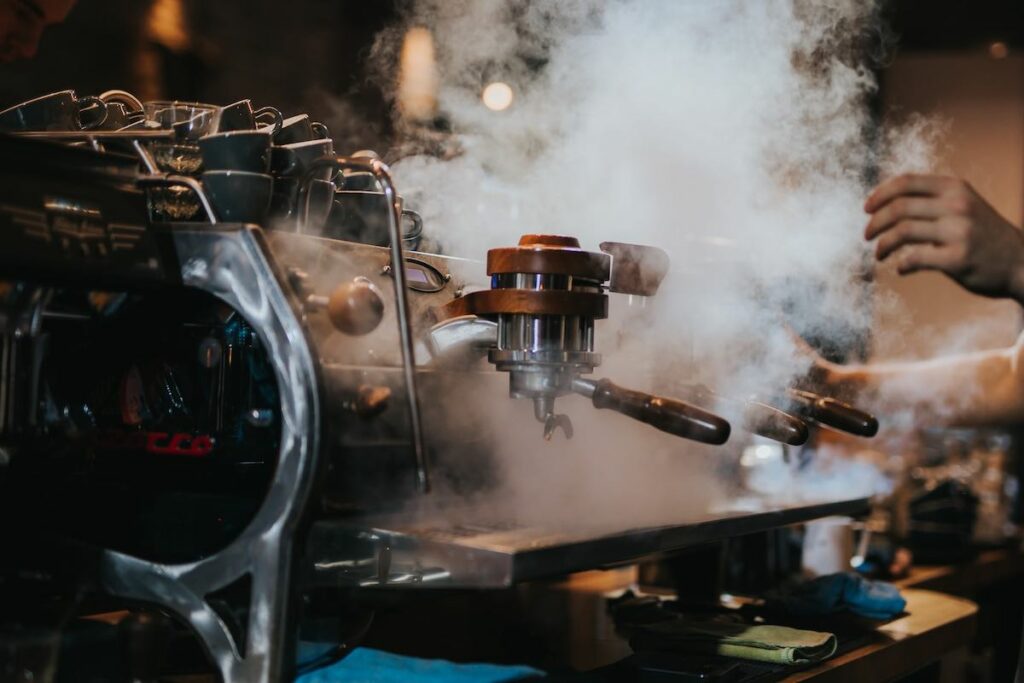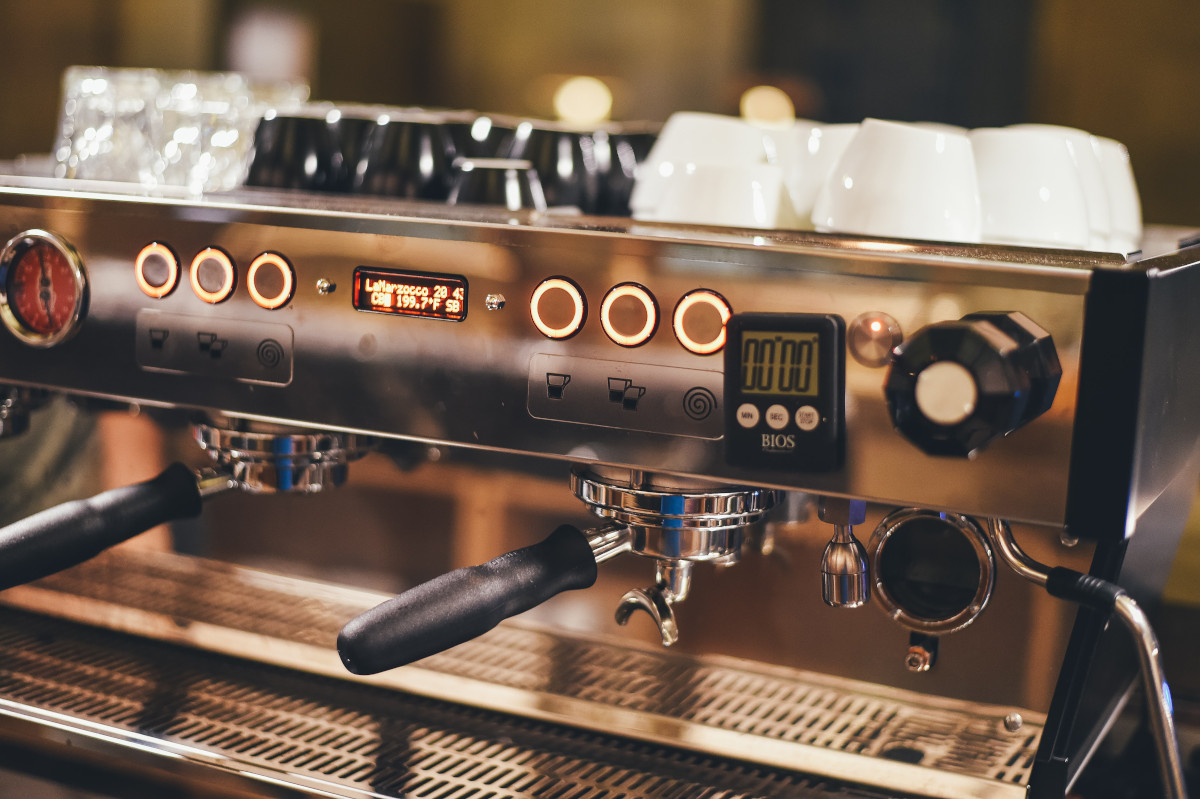Are you considering getting an espresso machine but worried about getting value for money? If you’re going to spend hundreds or even thousands of dollars on an espresso machine, then you want to know that it will last a long time.
In this article, we explain how long you can reasonably expect an espresso machine to last, and what you can do to make your espresso machine last longer.
What is the average life of a coffee machine?
A mid-range, affordable coffee machine should last at least five years under normal use. Many machines last longer than this, and it’s not uncommon for a coffee machine to still be going strong ten years after purchase.
High-end machines can be expected to last even longer than cheaper models. A hand-built premium espresso machine from a top manufacturer could last 20 years if maintained properly and not overused.
Most espresso machines come with a 1-year or 2-year warranty, which means the manufacturer will repair or replace any broken parts within that period of time after purchase.
4 factors that affect the lifespan of an espresso machine
The model of espresso machine you choose, how often you use it, and how well you look after it, will all affect how long your espresso machine lasts. And did you know that the type of coffee beans you use can impact the lifespan of your espresso machine too?
To predict how long your espresso machine will last, and make it last longer, you need to understand these four factors that affect its lifespan.
1. Make and model
The biggest factor affecting how long your espresso machine lasts is the make and model of the machine you purchase. Some espresso machines are built to last longer than others.
Usually, more expensive espresso machines are built to higher standards. Stronger materials, more robust manufacturing techniques and thorough testing make them more durable and less prone to faults.
While price isn’t a perfect predictor of how long an espresso machine will last – and some cheaper machines will last longer than expensive ones – to some extent, at least, it is true that you get what you pay for.
2. Frequency of use
Like all mechanical products, the lifespan of an espresso machine is defined more by the number of times it is used than by its age.
If your espresso machine is simply sitting in the kitchen, unused, then it will remain functional pretty much indefinitely.
In contrast, if you are pulling dozens of espresso shots per day, it will have a short lifespan of perhaps one or two years before you run into problems.
This is why some espresso machine warranties have a clause that restricts the warranty based on the frequency of use, as well as the time since purchase. For example, Gaggia’s standard warranty is one year or 6,000 cups, whichever comes first.
3. The coffee beans
It may surprise you to learn that the type of coffee beans you use can affect the lifespan of your espresso machine and the amount of maintenance it requires. This is because some coffee beans contain more oil than others.
If you choose oily coffee beans, more oil will be left behind in your espresso machine after the brewing process. Over time, this oil can build up and cause problems such as blockages and leaks.
4. Maintenance
All other things being equal, a well-maintained espresso machine will last longer than one that is poorly maintained.
Good maintenance means cleaning your machine regularly (particularly if you’re using oily coffee beans) and constantly being on the lookout for signs of trouble, such as leaks caused by broken gaskets.
Maintaining your espresso machine takes time, and may cost money if you need to replace parts or pay for a professional service.
However, espresso machines can be expensive, so it’s well worth investing in proper maintenance to make your coffee maker last longer, rather than having to buy a new machine as you didn’t look after your old one properly.

How to make your espresso machine last longer
Considering the four factors that affect the lifespan of an espresso machine, there are a few things you can do to make your espresso machine last longer.
- Buy quality: If you have the budget, it’s worth paying extra for a quality espresso machine from a well-known and respected brand.
- Don’t overload your machine: You should be able to use your espresso machine whenever you want, of course, but it’s also worth considering how much load you’re putting the machine through. If you can skip an espresso, or avoid making several espressos in quick succession, this will reduce the strain on your machine.
- Use less oily beans: To avoid oil build-up inside your espresso machine, you either need to avoid oily coffee beans or increase your cleaning frequency to clear the oil.
- Look after your machine: Clean your espresso machine every two or three months and get the machine serviced at the first sign of trouble (including leaks or strange noises).
By following these steps, you should be able to maximize the lifespan of your espresso machine with minimal cost and effort.
Of course, you could still be unlucky and find that your machine breaks shortly after purchase.
If this happens to you, then it’s best to contact the manufacturer to see whether your espresso machine is still within its warranty period.
In Conclusion: How long do espresso machines last?
How long your espresso machine lasts will depend on the type of machine you buy and how well you look after it. There’s also a bit of luck involved, as even the best espresso machine manufacturers will occasionally ship a faulty unit.
To increase the lifespan of your espresso machine, we recommend investing in the best machine you can afford, not brewing coffees in quick succession, avoiding oily beans, and maintaining your espresso machine properly.
If you follow our advice, then your espresso machine should last at least five to ten years, and possibly even longer!
FAQ – How Long Do Espresso Machines Last?
The lifespan of an espresso machine depends on various factors such as usage frequency, maintenance, and quality of the machine. On average, a high-quality espresso machine can last for around 8-10 years with proper care.
Factors that can impact the lifespan of an espresso machine include frequency of use, water quality, cleaning and maintenance routine, and overall build quality. Regular cleaning and descaling can help prevent damage from mineral buildup in the machine’s internal components.
Yes. You can start using filtered or bottled water instead of tap water, regularly cleaning and descaling the machine according to manufacturer instructions, not leaving water in the tank for extended periods of time, and using high-quality coffee beans that are appropriate for your specific type of espresso maker.

Hi, I’m Megan! I love coffee – especially cappuccino – and spending time with my kids. When I’m not busy being a mom, I enjoy reading magazines (or just about anything that interests me) and swimming. In fact, I used to be a swimmer in college!


Leave a Reply